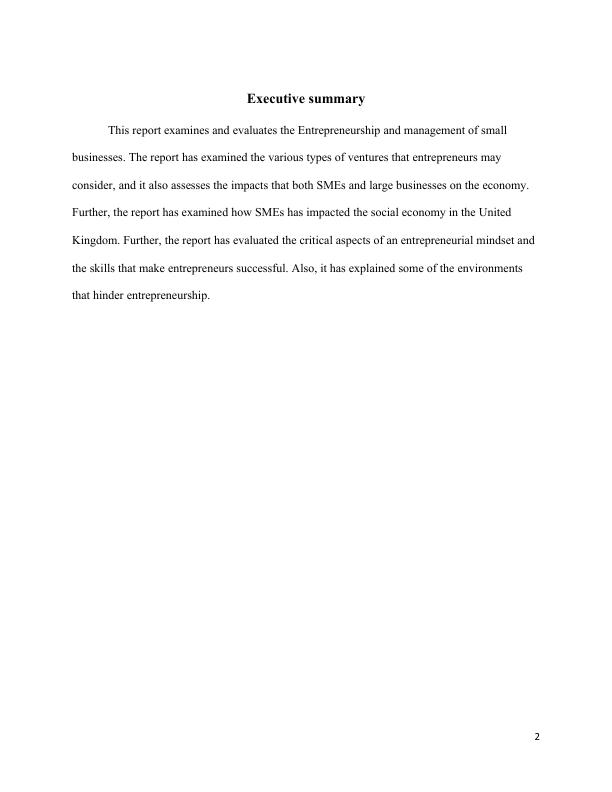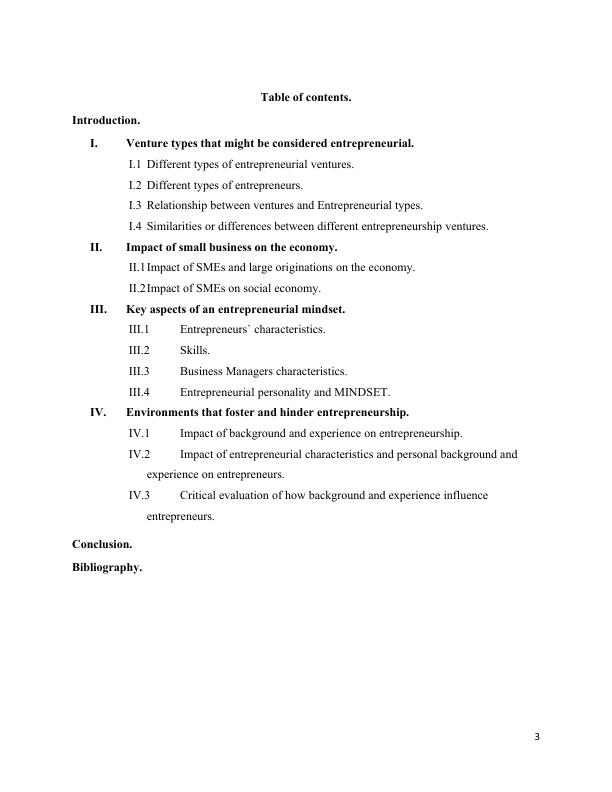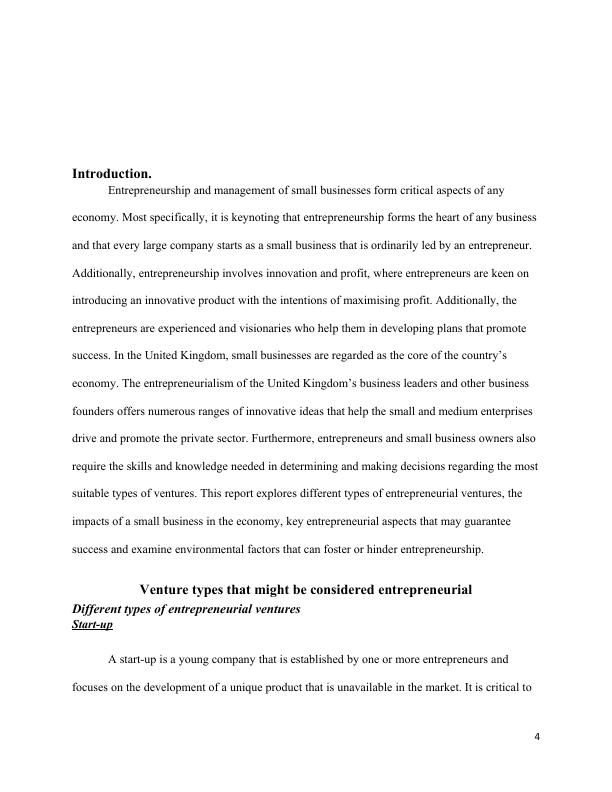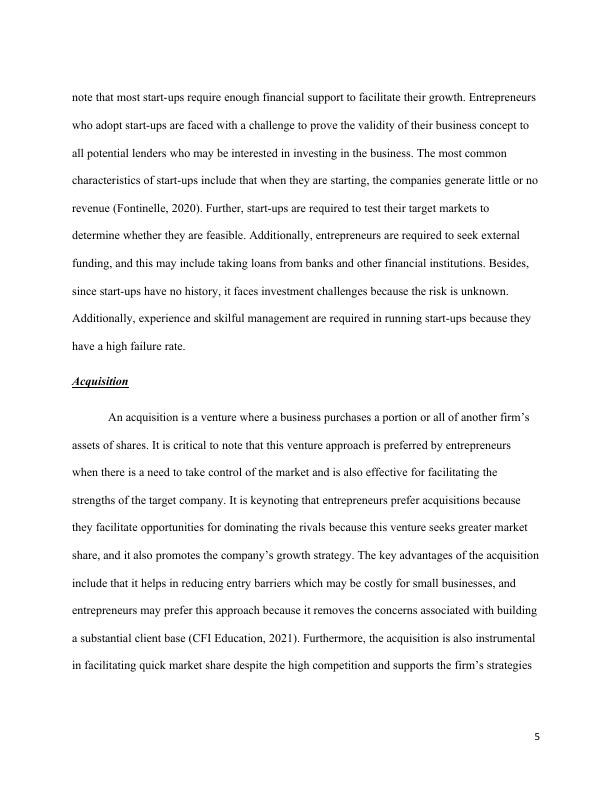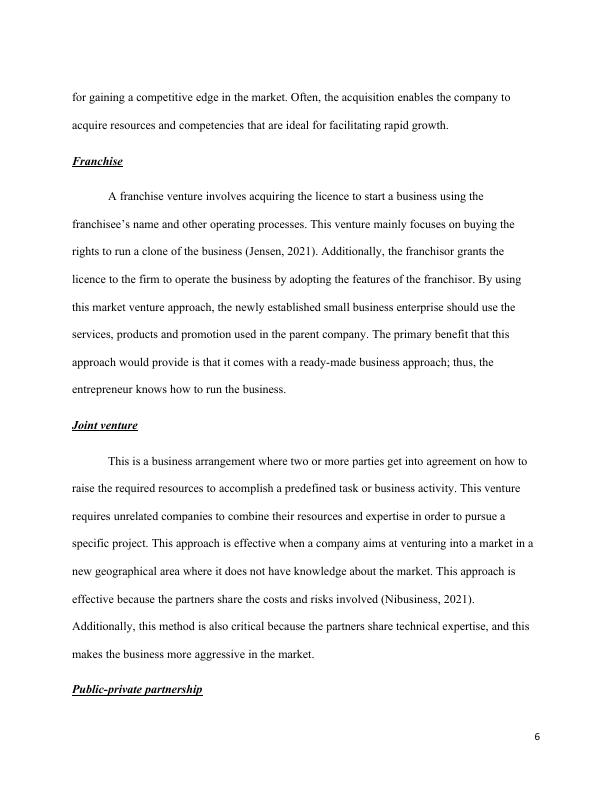Report on Evaluation of Entrepreneurship and Small Business Management
24 Pages5446 Words22 Views
Added on 2022-03-03
About This Document
This report will evaluate the Entrepreneurship and management of small businesses. It has examined the various types of ventures that entrepreneurs may consider, and it also assesses the impacts that both SMEs and large businesses on the economy. Further, the report has examined how SMEs has impacted the social economy in the United Kingdom. Further, the report has evaluated the critical aspects of an entrepreneurial mindset and the skills that make entrepreneurs successful.
Report on Evaluation of Entrepreneurship and Small Business Management
Added on 2022-03-03
ShareRelated Documents
End of preview
Want to access all the pages? Upload your documents or become a member.
Importance of Small Businesses and Start-ups in UK's Social Economy
|16
|4829
|1
P6. Reflect entrepreneurial motivation and mindset
|20
|6338
|153
Assignment on Entrepreneurship and the Small Business Management
|16
|5393
|77
Entrepreneurship and Small Business Management Report
|21
|6638
|192
Entrepreneurship and Small Business Management
|13
|3952
|61
Entrepreneurship and Small Business Management
|17
|4362
|288


